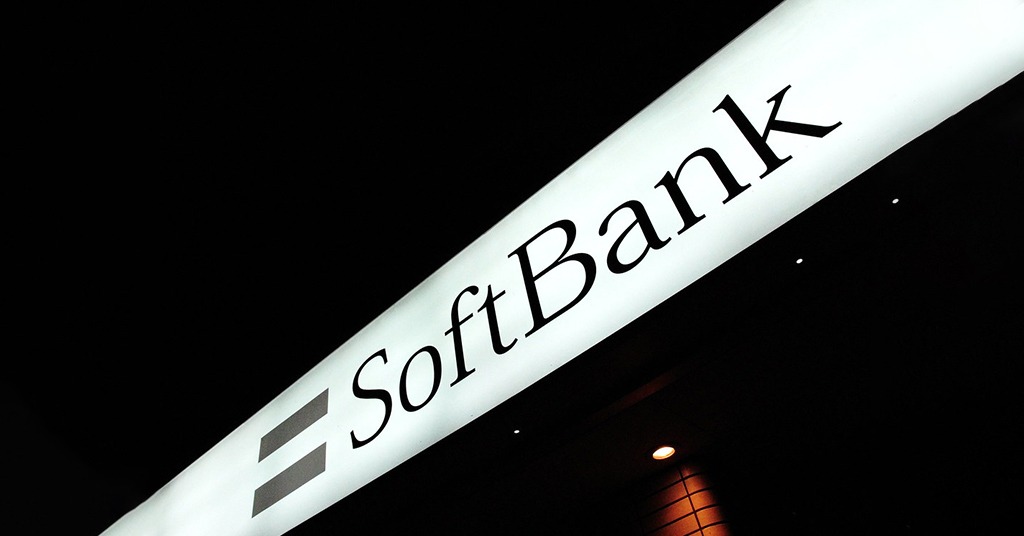We’ve gathered all the basic info on SoftBank and its largest & latest investments

Throwback Thursday: how SoftBank became huge conglomerate. Source: flickr.com
SoftBank Group Corp has been operating in Japan since the 1980s. Throughout these long years, it has expanded its activities globally, grown into a huge conglomerate, and become a true influencer in the tech sector.
About the company
SoftBank Group is the third-largest player in the Japanese market. Their Vision Fund – the biggest tech fund in history – has invested more than $70 billion in tech startups over the last few years. The Group held 87th position in the Forbes Top Regarded Companies 2018. Working in telecommunication services, this corporation boasts a current market value of $84,9 billion.
Masayoshi Son, the CEO of the Group, is known as a great visionary. He was the one to initially invest in Yahoo! and Alibaba foreseeing the glorious future of then-struggling startups.
Therefore, the company has a growth strategy for the next 300 years. The plans sound ambitious since SoftBank aims to become “the corporate group needed most by people around the world”. However, taking into account their current strategies and actions, they have all the chances.
To begin with, they concentrate on the information technologies which truly reshape the landscape of the modern world. Our societies are information-driven and SoftBank drives the technological revolution that delivers customized information access to all people.
The company doesn’t cling to particular technologies or business models. They form long-lasting and synergic partnerships with the most superior companies of the time. Throughout the years, SoftBank has merged its branches with Vodafone, Yahoo, JTB Corp., Honda Motor Co., Mizuho Bank, WeWork, IBM Japan, Ltd., and others.
On July 28, 2010, SoftBank Academia started to discover and train successors for the next generation of the SoftBank Group. They think of the future now and are doing everything to pass their corporate values and vision to the right hands. This way the spirit of the original company shall prevail in years to come.
Fields of operation
When we speak of SoftBank Group it is easier to count spheres of information technologies and beyond where it isn’t involved (if you ever find any).
It works with mobile communications. The company provides mobile connection services, sells cell phones, accessories, and subscription content including online games. SoftBank also offers favorable high-speed Internet plans which can be bundled with both fixed-line phone services and mobile plans. Their 3R (reduce-reuse-recycle) initiative is to collect functioning mobile phones and tablets from the customers who upgrade their devices and are willing to trade in. Those are further refurbished and reused in developing countries. Except for the used mobile phones, they collect battery packs, chargers, USIM cards, and other accessories for recycling.
The Corp. also deals with energy services. It allows households to use their other services savings on electric power. In addition, it takes care of the environment by supplying renewable energy with its Shizen-Denki project. SB Energy Corp. operates 32 mega solar power facilities at 29 sites in Japan as well as 1 wind power generation plant. Their environmental initiative is served by Hokkaido Electric Power Co., Inc., Tokyo Electric Power Company Holdings, Inc., and The Kansai Electric Power Co., Inc.
Their Arm segment provides processor IP and related software and tools, Internet of Things (IoT) platform, and solutions. Along with the funded startups they work on developing robots, drones, autonomous vehicles, and numerous connected devices. SoftBank Robotics solutions are used in more than 70 countries worldwide best applicable in the fields of retail, tourism, healthcare, finance, and education
In 2014, SoftBank together with Aldebaran Robotics announced the launch of Pepper – the world’s first personal robot that reads emotions. It is equipped with an emotional engine and a cloud-based AI system that can analyze expressions and voice tones. In Japan, Softbank Mobile stores and banks are already using Pepper to welcome and guide customers. It can be also utilized at individual homes as a helpful assistant able to fight the biggest personal problem of today – loneliness.
SoftBank Vision Funds and Delta Funds are major sources of large-scale and long-term investments for the visionary startups aiming to make the world a better place with innovations. Except for those involved in information technologies, the funds supported entrepreneurs dealing with implementing AI and tech into cancer detection, construction, dog walking, indoor farming, ride-hailing, satellites, or smart window glass development.
In addition, Softbank provides a range of telecom services for business entities including landline telephone services, cloud services, network and VPN, cognitive computing IBM Watson, digital marketing, digital security, data systems, corporate mobile plans, etc.
テレビ朝日・六本木ヒルズの夏祭りイベント #サマステ 会場にも体験ブースがあります。 https://t.co/YuwkvPQAQK#ソフトバンクニュース#fujirock pic.twitter.com/oCAVO8xHsA
— ソフトバンクニュース (@sbg_news) 26 июля 2019 г.
As a part of their agenda, SoftBank established SB Drive Corp. presenting smart mobility services based on self-driving technologies. They signed agreements to build the trans-Pacific submarine cable system “JUPITER” along with 5 other companies.
Getting deeper into the world of finance, they established J.Score Co. Ltd, a joint venture with Mizuho Bank, Ltd., to provide lending services to individuals.
Recent Softbank’ deals
2018 wasn’t easy for the tech giant. They had some significant lows in their financial affairs. Therefore, they met last autumn with about $158.8 billion of current and non-current interest-bearing debt. That greatly exceeded the average income of the company.
However, the management stayed optimistic believing it’s only natural considering their massive transition into the investment sphere. They raised $23.6 billion with their first IPO which then witnessed a 15% value drop. So, 2019 began with a new challenge.
The main recent deals (or should we say mega-deals considering the huge investment sums) included:
- WeWork (We Company). The company that provides shared workspaces and business services had already been owned by SoftBank by 20%. They planned to invest an additional $16 billion to become the major stakeholder this year. Yet the company faced opposition from the investment partners and decided to settle on a “moderate” amount of $2 billion.
- Opendoor & Compass. Two similar deals with online real estate platforms getting $400 million each.
- DoorDash. This developer of a food-delivery app has become a tech unicorn thanks to generous investments from SoftBank.
- Wag. SoftBank invested $300 million in the innovative dog walking mobile application solution. The company offers services of certified dog walkers. The app provides on-demand dog walking, dog sitting, and dog boarding services and features GPS tracking and route reports.
- Uber. This company doesn’t need any additional presentations. With one of their latest deals, SoftBank became the single largest shareholder in Uber, which is now valued at $72 billion.
- Zume. Another $375 million from the Vision Fund went to the robot-powered pizza delivery service.









